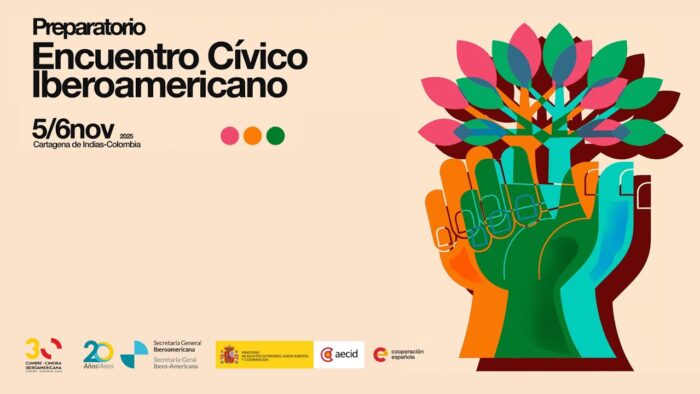Haïti: la Banque mondiale approuve un financement supplémentaire de 80 millions de dollars à l’appui des efforts de relèvement post-ouragan
WASHINGTON, 15 juin 2017 — Le Conseil des administrateurs de la Banque mondiale a approuvé trois dons d’un montant total de 80 millions de dollars afin d’appuyer les efforts de redressement d’Haïti après le passage de l’ouragan Matthew. Les objectifs de ces financements supplémentaires sont les suivants : restaurer l’offre et la qualité des services de santé et amplifier les efforts de prévention et de lutte contre le choléra ; garantir la sécurité, la fiabilité et la résilience des services d’alimentation en eau ; et soutenir la production agricole par le biais de subventions et d’activités de travail contre rémunération dans les zones du sud du pays les plus affectées par l’ouragan. « En accordant ces dons, la Banque mondiale s’efforce de tenir son engagement d’aider la population haïtienne à se relever et à mieux faire face aux catastrophes naturelles, » souligne Mary Barton Dock, envoyée spéciale de la Banque mondiale à Haïti. « Alors que les autorités du pays ont commencé à se préparer à la nouvelle saison des ouragans, ce soutien supplémentaire met davantage l’accent sur le renforcement de la résilience dans les secteurs essentiels de l’agriculture, de la santé et de l’eau, et vient cibler les plus démunis. » Selon l’évaluation des besoins post-catastrophe, l’ouragan Matthew a entraîné des pertes dans les secteurs de l’agriculture, de l’élevage et de la pêche estimées à 593 millions de dollars, avec des répercussions durables sur les moyens de subsistance de la population rurale. Bien que les secteurs de l’éducation et de la santé aient été moins touchés, la population a été considérablement affectée par les dommages et l’interruption des services dans les établissements scolaires et sanitaires. Enfin, les services d’eau et d’assainissement, insuffisants depuis longtemps, étaient particulièrement vulnérables aux catastrophes naturelles dans les zones sinistrées : 58 % seulement des Haïtiens ont accès à l’eau (48 % dans les zones rurales) et 28 % à des installations d’assainissement améliorées (19 % dans les zones rurales).Huit mois après l’ouragan, la reprise est en cours. Une partie de la récolte hivernale a pu être sauvée, tandis qu’environ 8 000 hectares ont été plantés de cultures vivrières diverses aux Anglais et à Dubreuil, Chantal, Avezac et Dory. Grâce aux ressources supplémentaires destinées au secteur agricole, quelque 20 000 agriculteurs seront intégrés dans des chantiers de travail contre rémunération, tandis que plusieurs milliers de producteurs recevront des intrants agricoles, du bétail et un soutien technique, tout en bénéficiant de la remise en état des systèmes d’irrigation. L’ensemble de ces interventions permettra aux agriculteurs de reconstituer leur patrimoine et leurs capacités productives en renforçant parallèlement leur résilience aux aléas climatiques. Le déploiement rapide des opérations d’urgence dans les domaines de l’eau et de l’assainissement et de la santé a entraîné une baisse des décès dus au choléra ainsi que des nouveaux cas suspects. Les ressources supplémentaires destinées au secteur de l’eau et de l’assainissement permettront d’améliorer l’accès à l’eau pour 385 000 habitants des zones sinistrées et les services de santé pour les mères et les enfants. Dans les régions touchées par le choléra, les populations bénéficieront d’une intensification de l’offre de soins ainsi que des efforts de surveillance et de prévention. Enfin, ce financement permettra de réhabiliter totalement 40 équipements sanitaires. Les trois dons approuvés aujourd’hui relèvent de l’enveloppe de 100 millions de dollars mobilisée par le Mécanisme de riposte aux crises* de l’Association internationale de développement (IDA) afin de soutenir le processus de reconstruction après le passage dévastateur de l’ouragan Matthew. Un don de 20 millions de dollars pour la remise en état des routes et des ponts et le renforcement des capacités d’intervention de la protection civile en cas de catastrophe a déjà été approuvé la semaine dernière. Comment la Banque mondiale contribue au relèvement d’Haïti à la suite de l’ouragan Matthew : À la suite de la catastrophe, la Banque mondiale a immédiatement mobilisé plus de 49 millions de dollars sur les ressources déjà allouées à Haïti pour les réorienter d’urgence sur la réfection de routes et de ponts, la réparation d’établissements scolaires et la distribution de repas aux élèves, la remise en état de systèmes d’alimentation en eau et d’assainissement, l’intensification rapide de la lutte contre le choléra, la distribution de semences et d’engrais pour la saison hivernale, et des chantiers de travail contre rémunération pour le nettoyage des canaux d’irrigation. Un don supplémentaire de 30 millions de dollars a été mobilisé un mois après la catastrophe afin d’améliorer la scolarisation et l’apprentissage des élèves des quatre départements du sud du pays ; la Banque mondiale a également engagé une enveloppe totale de 100 millions de dollars à travers le Mécanisme de riposte aux crises* de l’IDA afin de soutenir les populations du Sud les plus touchées et de les aider à se relever et à renforcer leur résilience en agissant dans les secteurs de l’agriculture, de la santé, de l’eau et de l’assainissement, et des transports. * Le Mécanisme de riposte aux crises de l’IDA a été mis en place pour aider les pays à faible revenu à se relever après la survenue d’une grave crise ou catastrophe. —————————- Pour en savoir plus sur les activités de la Banque mondiale en Amérique latine et dans les Caraïbes : www.worldbank.org/lac Rejoignez-nous sur Facebook : http://www.facebook.com/worldbank Suivez notre actualité : Sur Twitter : @WBCaribbean Sur YouTube : http://www.youtube.com/worldbank


